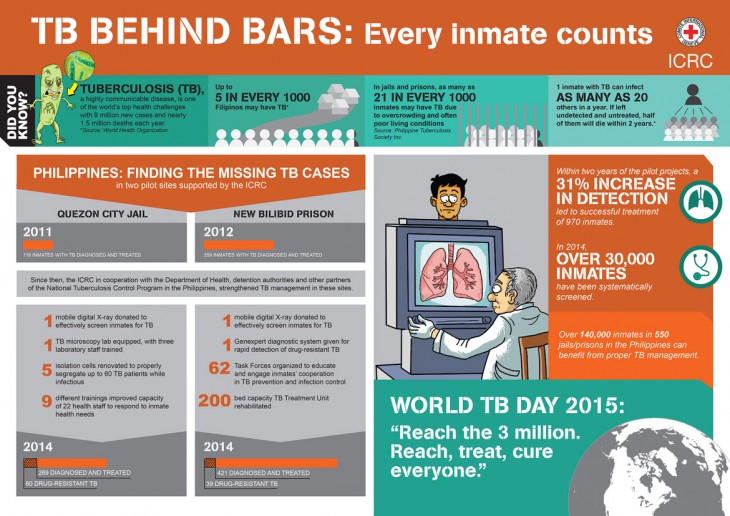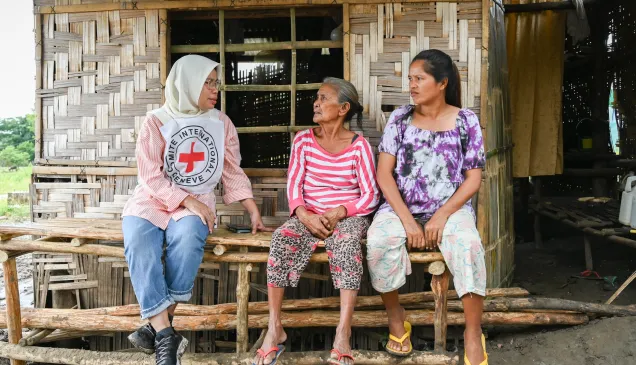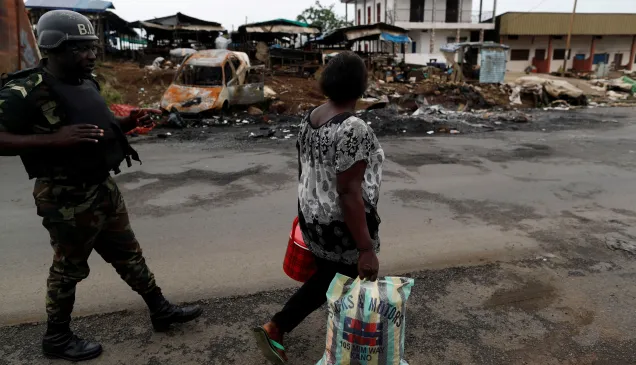Combating tuberculosis in detention
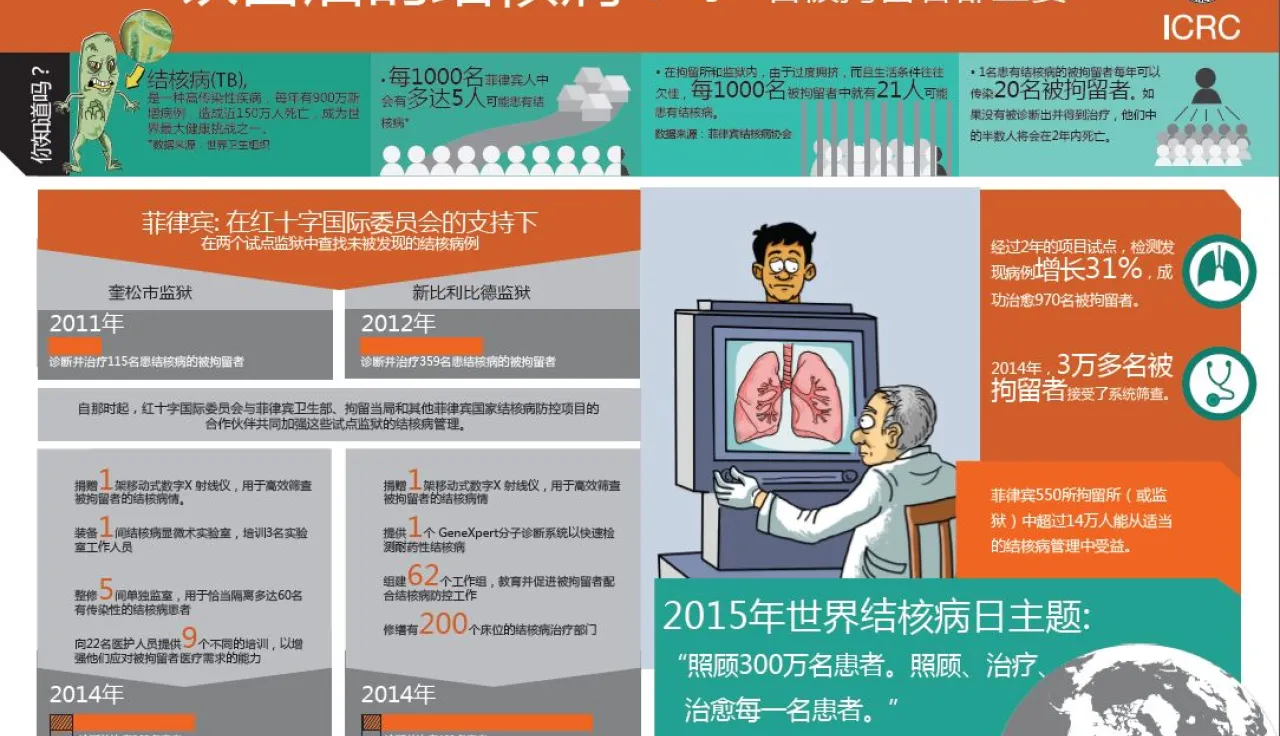
Tuberculosis, a curable but potentially fatal disease if not treated correctly, is rapidly spreading worldwide – reaching alarmingly high levels in a number of locations. In particular, the rate of incidence is higher than normal inside detention centres. This is due to a combination of factors, such as overcrowding, unsanitary conditions and restricted access to proper medical care. This World Tuberculosis Day, we take a glimpse into the work of the ICRC in Philippines and Kyrgyzstan prisons to combat this disease.
For many years, the ICRC has worked to control the spread tuberculosis and provide treatment to patients in prisons. Currently, the organization is operating a tuberculosis programme in the Philippines, as well in Kyrgyzstan where the focus is on treating multi-drug resistant tuberculosis patients.
Philippines
In the confines of Philippine prisons, tuberculosis poses a number of challenges. The ICRC has been working with detention authorities and other stakeholders in two pilot locations, enhancing Tuberculosis case detection and providing early treatment.
See the infographic: Managing tuberculosis in detention (PDF)
Kyrgyzstan
Since 2007, the ICRC has been treating multi-drug resistant tuberculosis (MDR-TB) in two prisons in Kyrgyzstan. MDR-TB indicates that patients have developed highly resistant strains of tuberculosis and are longer responding to two or more of the drugs that are commonly used together to treat the disease. For these patients, treatment involves being monitored from diagnosis to cure – a process that can take up to two years.
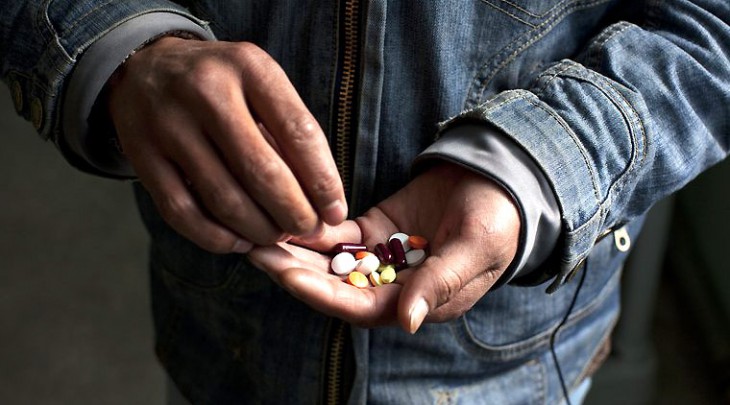
Patient of Colony 27 Prison in Kyrgyzstan / CC BY-NC-ND / ICRC / W. Daniels
In Kyrgyzstan:
- The ICRC has been active in two detention centres: Colony 31 (300 detainees) and SIZO1 (1,200 detainees). However, all tuberculosis cases are referred to Colony 31. The ICRC's work at SIZO 1 is mainly focused on screening tuberculosis cases.
- The ICRC has operated a tuberculosis programme in Kyrgyzstan since 2006, but the organization has only been present in Colony 31 since 2013 and in SIZO1 since the beginning of 2015.
- The ICRC started working with multi-drug resistant tuberculosis in 2007, treating 647 patients with MDR-TB and extreme resistant tuberculosis.
- In 2014, 48.5% to 51% of the treatment for MDR-TB and extreme tuberculosis was successful.

